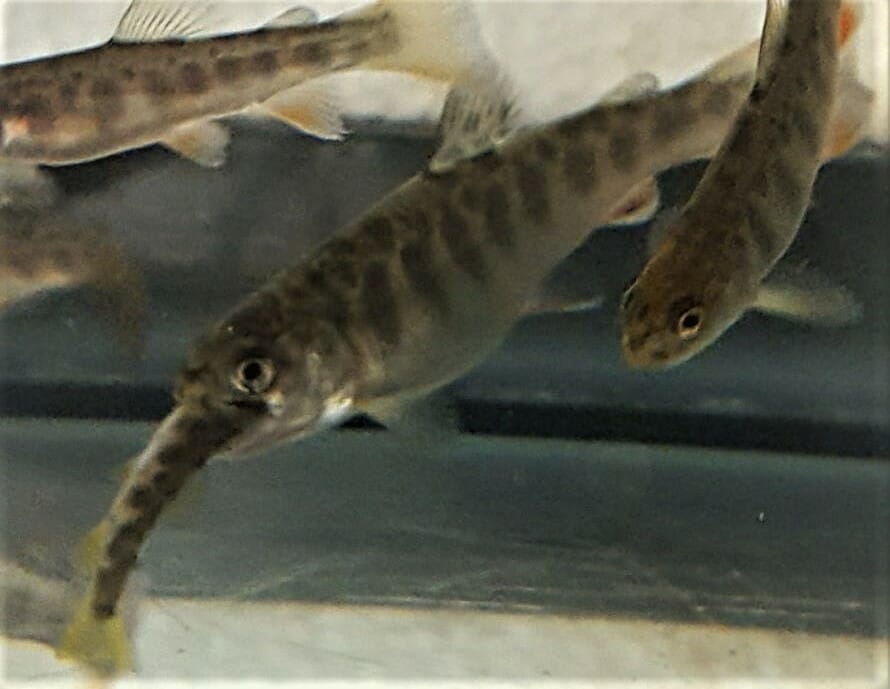
Let’s face it: this school year is going to be a huge challenge as teachers, parents, and students prepare for a brave, new semester of strange, new virtual participation. A number of states have announced plans to re-open in-person classes while others are looking at hybrid or all-virtual instruction. As this is getting sorted out state-by-state and district-by-district, there is still a lot of uncertainty. That uncertainty spills over into optional, complementary formal education programs like Salmon and Trout in the Classroom (S/TIC).
More than 150 TU chapters and councils facilitate S/TIC as part of their youth programming. It’s also facilitated by other non-profits (e.g. Alliance for the Chesapeake Bay) and state agencies across the country – some in partnership with TU, some not – all of whom seem to be in different stages of decision and preparedness. This variety of partnerships and perspectives allows for a multitude of resources and avenues to be developed and explored. It also makes it nearly impossible to find a one-size-fits all solution to anything S/TIC-related.
One thing is for certain, though, for all TU-facilitated events and programs this year: the safety and health of our volunteers, partners, staff and the communities in which they live is our number one priority. We ask that before you participate in any event or activity you read the Safety Protocols for TU Chapter Events and Activities guidebook. It is required that every chapter, council and volunteer leader follow all federal, state and local laws, regulations, ordinances and best practices if an indoor activity is planned.
Below are some recommendations and scenarios we’ve gathered from the varied and geographically diverse S/TIC community. As always, if you would like to talk any of this through in more detail, TU is just an email or phone call away. Please contact Tara Granke to set up a time to chat.

Some things to consider:
- Do your volunteers feel safe? No person should feel pressured or forced to participate in an event if they do not want to. Period. This may mean that very few, if any, volunteers are willing to participate. If that is the case, postponement may be the best option. Alternatively, if it is important for the program to continue, a partner organization or other volunteers, such as students’ parents, could be asked to help support.
- Can the program be compliant with school policy? New procedures and policies are being developed to mitigate the risks of spreading novel coronavirus. As an example, school districts in North Carolina and Tennessee have developed a “No Visitors” policy. Because of this, these states will be postponing S/TIC until spring or fall of 2021.
- What do teachers want/need? Some teachers are feeling overwhelmed and may want to take a break this year. Others may communicate that they want to use the aquarium as a virtual learning tool for their e-learning curriculum. If you choose to support the program this year, ask teachers what they want. It will likely be very different from a typical year.
- What will happen to unused equipment? Ask schools that will not be participating this year to store their equipment on-campus. If not possible, organize a no-contact pick up.
Possible scenarios:
- All-virtual S/TIC: A seasoned TU volunteer or state agency biologist could care for a tank and provide regularly broadcasted maintenance checks and/or lessons using a web cam. Teachers and students are able watch the life cycle of the trout and weave this in to their curriculum.
- Teachers-only S/TIC: Teachers that are able could run the program independently without in-person support from chapter volunteers. They may still need support for egg procurement or via phone calls to troubleshoot equipment setup or issues but would mostly be on their own.
- Skip the trout, keep the science: This scenario omits the live portion of S/TIC but teachers continue to supplement curriculum with TIC-related content. Check out the Online Lesson Plan Library or one of the TU Family Field Trip blogs for ideas.
- Postpone the program until 2021: if your TU chapter youth committee makes the tough decision to cancel, be sure to communicate the decision with school contacts as soon as possible.
Undoubtedly, there are many more scenarios playing out across the country. What’s happening in your neck of the woods? Join the discussion on TU’s Leaders Forum. We’d love to hear your plans and gather any virtual learning resources you’ve found. We’re all in this together.
Tara Granke is TU’s Headwaters Youth Program Coordinator and is based in Asheville, NC.

